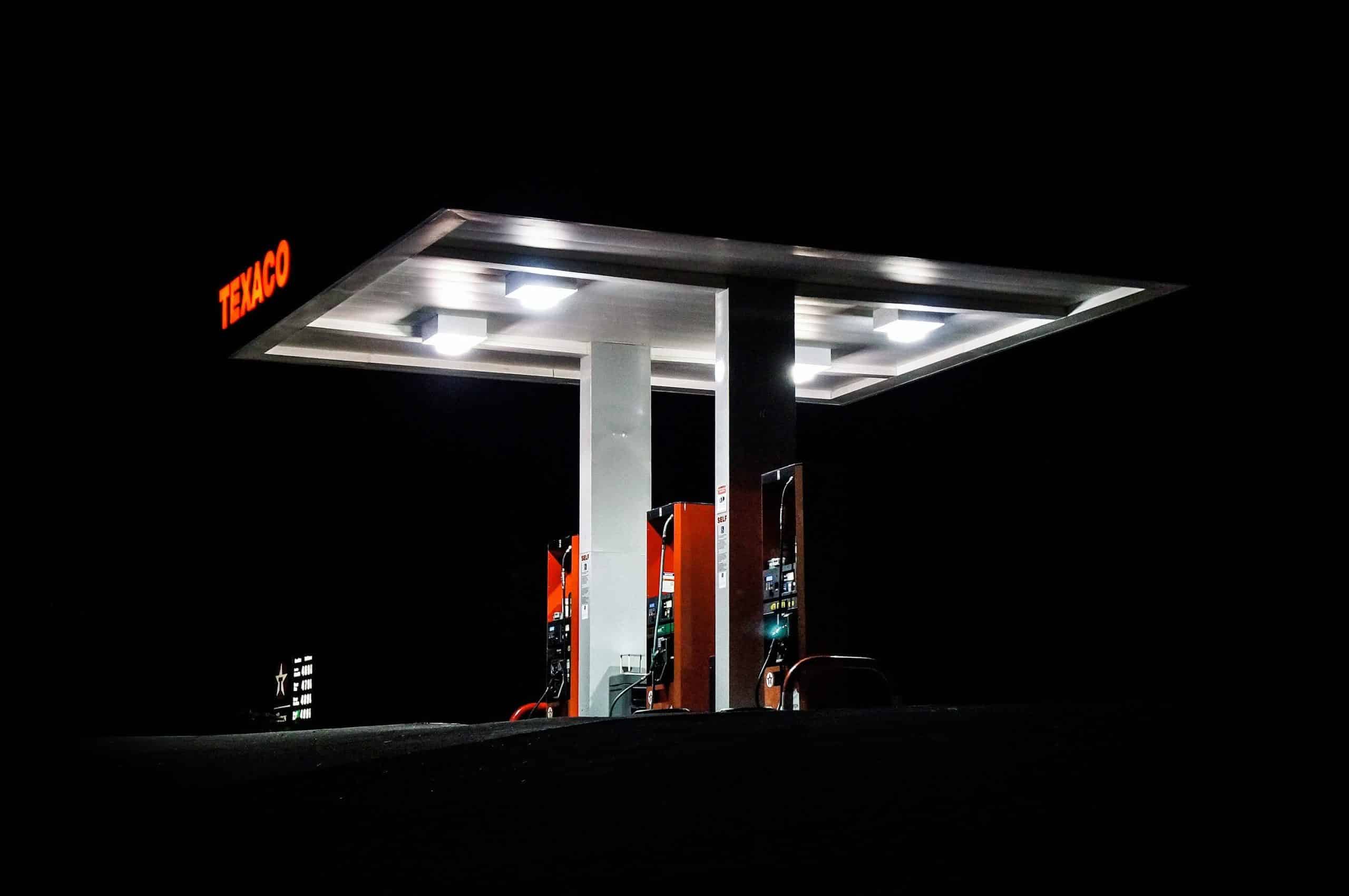One of the saddest quotes from the Vietnam War came from journalist Peter Arnett, who wrote in a dispatch in 1968 about an American attack on a Vietcong-held village: “It became necessary to destroy the town to save it.” As often happens with such quotes, they take on a second and even third life. Today, the Biden administration seeks to destroy the American economy ostensibly to save America from the dreaded climate change.
No one advocating the so-called Green New Deal (GND) has put it quite like that. In fact, its advocates claim that not only will the GND give us better weather, but it will raise the standard of living in the USA by “creating millions of new, high-paying jobs.” Sen. Elizabeth Warren claims on her website that the GND under her leadership (if she ever were elected president) would “create 10.6 million green jobs,” adding:
While climate change presents an urgent threat, it also presents the greatest opportunity of our time: the chance to rebuild our economy with 100% clean energy, to address the racial and economic inequality embedded in our fossil fuel economy, and to create millions of good, union jobs in the process.
One needs to ask how she came up with such numbers and such an optimistic outlook, but one gets the picture. The web is full of apocalyptic claims about climate change, many coming from the US government and the assorted groups. Rep. Alexandria Ocasio-Cortez, one of the sponsors of the proposed Green New Deal, has openly claimed that the world literally will end in twelve years if we don’t stop carbon dioxide emissions now.
As Michael Shellenberger has pointed out in many publications, including Forbes, the claims of the coming apocalypse are a bit premature. Addressing the claim made by environmentalists that billions of people will perish in the coming disasters, he writes:
In 1931, 3.7 million people died from natural disasters. In 2018, just 11,000 did. And that decline occurred over a period when the global population quadrupled.
What about sea level rise? IPCC estimates sea level could rise two feet (0.6 meters) by 2100. Does that sound apocalyptic or even “unmanageable”?
Consider that one-third of the Netherlands is below sea level, and some areas are seven meters below sea level. You might object that Netherlands is rich while Bangladesh is poor. But the Netherlands adapted to living below sea level 400 years ago. Technology has improved a bit since then.
What about claims of crop failure, famine, and mass death? That’s science fiction, not science. Humans today produce enough food for 10 billion people, or 25% more than we need, and scientific bodies predict increases in that share, not declines. The United Nations Food and Agriculture Organization (FAO) forecasts crop yields increasing 30% by 2050. And the poorest parts of the world, like sub-Saharan Africa, are expected to see increases of 80 to 90%.
Not surprisingly, President Joe Biden has sided with the most radical alarmists and has taken action from day 1 in his presidency to curtail and ultimately destroy the oil and gas industries in the USA. Last year, I wrote that this administration was attacking these industries on every front, but Biden now claims that his government is doing nothing of the sort. He repeated the claim at a recent press conference: “It’s simply not true that my administration or policies are holding back domestic energy production.”
The facts state otherwise. Biden and his government are going after the productive (as opposed to the nonproductive) energy sectors, looking to regulate them on a number of fronts, including the investment side (capital markets) and the regulatory side, seeking to further limit emissions from the use of fuels such as oil and natural gas. Likewise, some states are seeking draconian “solutions” to the use of fossil fuels, including California and Washington, which has passed legislation that will ban the sale of gasoline- and diesel-powered cars by 2030. The statement from the Washington legislature is more of a wish list than an acknowledgement of the real energy future that people there will face:
Clean Cars 2030 will:
- Put Washington on the road to powering its vehicles with locally-produced electricity that is cleaner and cheaper than gasoline.
- Spur a comprehensive planning process for Washington to get ready for 100% vehicle electrification.
- Clarify for local governments, automakers, charging companies, utilities, investors, landlords, and workplaces the direction of the state’s EV market.
- Incentivize private-sector investment in new EVs and charging stations.
- Increase opportunities for Washingtonians to save money on gasoline.
- Reduce the cost and uncertainty of dependence on foreign sources of oil.
- Reduce carbon emissions and air pollution and the threat they pose to air, water, and health.
One should note that the legislature has not banned diesel-powered trucks, train locomotives, and sailing vessels, given their dependence upon diesel fuel. Like most politicians and bureaucrats, the backers of this legislation believe that their timetables will be met if for no other reason than the existence of the collective political will of Washington Democrats. Most people who deal in the real world, however, will not be surprised if chaos erupts as 2030 draws nearer.
On the funding side, the Biden administration is looking to strangle oil and gas by limiting and ultimately cutting off all their capital investments. His decision to shut down construction of the Keystone Pipeline sent the clear message to oil and gas producers that his administration would nullify billions of dollars of capital investments to satisfy political constituents.
The Securities and Exchange Commission, which regulates US capital markets, has come down firmly on the side of the environmental, social, and governance (ESG) movement, which wants climate change to drive financial markets entirely:
The Securities and Exchange Commission today announced the creation of a Climate and ESG Task Force in the Division of Enforcement. The task force will be led by Kelly L. Gibson, the Acting Deputy Director of Enforcement, who will oversee a Division-wide effort, with 22 members drawn from the SEC’s headquarters, regional offices, and Enforcement specialized units.
Consistent with increasing investor focus and reliance on climate and ESG-related disclosure and investment, the Climate and ESG Task Force will develop initiatives to proactively identify ESG-related misconduct. The task force will also coordinate the effective use of Division resources, including through the use of sophisticated data analysis to mine and assess information across registrants, to identify potential violations.
The initial focus will be to identify any material gaps or misstatements in issuers’ disclosure of climate risks under existing rules. The task force will also analyze disclosure and compliance issues relating to investment advisers’ and funds’ ESG strategies. Its work will complement the agency’s other initiatives in this area, including the recent appointment of Satyam Khanna as a Senior Policy Advisor for Climate and ESG. As an integral component of the agency’s efforts to address these risks to investors, the task force will work closely with other SEC Divisions and Offices, including the Divisions of Corporation Finance, Investment Management, and Examinations.
“Climate risks and sustainability are critical issues for the investing public and our capital markets,” said Acting Chair Allison Herren Lee. “The task force announced today will play an important role in enhancing and coordinating the efforts of the Division of Enforcement, the Office of the Whistleblower, and other parts of the agency to bolster the efforts of the Commission as a whole on these vital matters.”
The language may be bureaucratic, but the meaning is clear: the oil and gas industries are a threat to the planet, and the SEC will attempt to regulate them out of business. Commenting on the Biden administration’s jihad against productive energy firms, Mark Hemingway of RealClearInvestigations writes:
In 2020, the United States was a net petroleum exporter and gas averaged $2.37 a gallon. When Biden became president in January 2021, that same month he signed an executive order forbidding new leases for oil and gas drilling on federal lands—that’s a ban on oil exploration on 28 percent of U.S. land. The ban on drilling was a campaign promise, made to placate the party’s environmental activists. Within a year, the United States reverted to being a net petroleum importer.
Biden’s claim that his policies are not holding back energy production isn’t just a politician stretching the truth, it’s dishonest gaslighting. There’s a simple reason why Biden will stand before the American people and lie to their faces. Ordinary Americans aren’t confused about whether Biden’s policies are responsible for higher gas prices (and in fact, many on the left openly say higher prices are necessary to combat warming). At this point, the goal isn’t to mislead, it’s to force acceptance and submission to those who are in power.
Biden’s actions are not just about the price of gasoline at the pump, although it should be clear his policies have played a vital role in driving up prices, Russia’s invasion of Ukraine notwithstanding. Instead, they are an attempt to destroy perhaps the most vital industries in the United States, industries that are irreplaceable. The notion that the entire US economy can pivot within a decade from fuels to electricity even as the government seeks to curtail the production of electricity from conventional sources is simple foolishness.
Not surprisingly, the response of the Biden administration and its supporters has been the energy rendition of “Let them eat cake.” Transportation secretary Pete Buttigieg, when asked about higher gasoline prices, replied that Americans should just go out and buy electric cars, even though the price tag for even basic electric vehicles is out of the reach of most American car buyers and that the supply of EVs could not possibly match demand under current conditions.
Journalist Bernard Goldberg wrote in The Hill:
And so when, with a stroke of a pen, President Biden signed an executive order that cancelled the Keystone XL pipeline, costing thousands of blue-collar workers the jobs they needed to pay their bills, it had a Marie Antoinette air to the whole thing.
Not to worry, they were told. You’ll get new jobs. Better jobs. Cleaner jobs. Just wait and see. You have no bread, you say? Then just eat cake.
John Kerry, Biden’s “climate czar,” says that “What President Biden wants to do is make sure those folks have better choices, that they have alternatives, that they can be the people to go to work to make the solar panels.”
Added Goldberg:
That’s easier said than done. Most solar panels are made in China.
Despite the Biden administration’s insistence that it is just bravely facing the realities of climate change, Biden and his allies are engaged in outright gaslighting. Americans would not recognize an economy run under the auspices of the Green New Deal, even after the worst days of the covid lockdowns and the supply disruptions that followed.
If this administration and like-minded officials in state capitols have their way, the disruptions and empty shelves that we hope now to be temporary would be anything but. Instead, they would be a new way of life. Furthermore, we still would have tornadoes in Oklahoma and Alabama, wildfires in California, and hurricanes on the East Coast. Nothing would change but our ability to deal with the elements, and that would mean people freezing in their homes in winter and unable to cool their homes in hot summers. (And none of Biden’s climate initiatives will make summers in the Deep South any more bearable.)
Like the aftermath of the bombings and artillery bombardments in Vietnam, we can be sure that the efforts of the Green New Deal will result in plenty of destruction. And like the results of the Vietnam War, the destruction in the end will have saved nothing.
This article was originally featured at the Ludwig von Mises Institute and is republished with permission.































